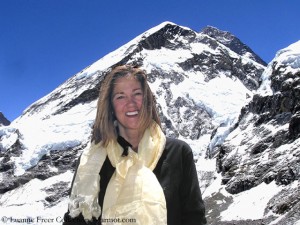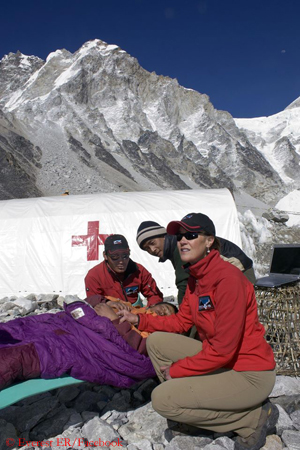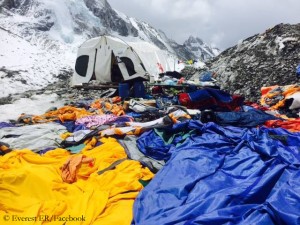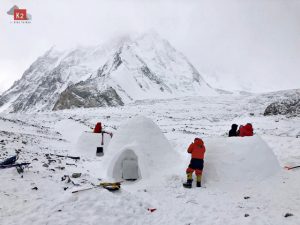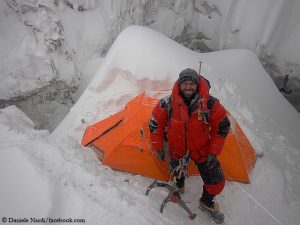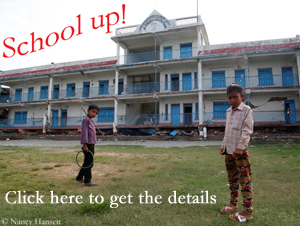Luanne Freer: “Doping on Everest not talked about openly”
“Never open your mouth, unless you’re in the dentist’s chair.” These were the words Salvatore Gravano called “Sammy the Bull”, a mafioso from New York, used to describe the “Omerta”: the unwritten law of the underworld to be silent no matter what happens. Even athletes using doping substances usually say nothing unless they are found to be guilty. In this respect, mountaineering is not an “island of bliss”. Anyone who has ever been on expedition has probably met some climbers who carelessly use medicine that actually should be used in case of emergency – or even performance enhancers. Just nobody of these climbers admits to do so. Luanne Freer is the “Everest doctor”. For twelve years, she has treated climbers in “Everest ER”, the emergency room at the Base Camp on the Nepalese side of the highest mountain on earth. I asked the 57-year-old about her experiences on the topic of doping on Mount Everest.
Luanne, in 2003 you founded “Everest ER”, the highest infirmary in the world. Since then, you have spent many climbing seasons in Base Camp. How widespread is doping among Everest aspirants?
We aren’t really sure, because it tends to not be talked about openly. Our doctors tend to discover it only after there has been a complication or if the patient comes in with a possibly related issue. That’s why Dr Luks, Hackett, Grissom [Andrew M. Luks, Peter Hackett and Colin K. Grissom are internationally renowned high-altitude physiologists from the United States] and myself did a confidential and anonymous survey of Everest climbers. We collected a lot of data and are still sifting through all of it.
Have you noticed that climbers are thoughtlessly using emergency medication?
I will say that I’ve seen some climbers using very powerful drugs without much thought or insight into the potential harm they might do themselves.
What do you estimate, how many accidents on Everest are due to drug abuse?
I know of just one or two in which I’m pretty sure that a non medically approved use or dosage probably contributed to a death or accident.
Who is more to blame: the climbers who use drugs on Everest or the doctors who recommend them to do so?
I can’t blame climbers. But I do implore healthcare providers who prescribe these medications to educate themselves first about the science behind their safe use, and then educate their patients if they prescribe to them. It’s imperative that anyone with a bottle of pills knows exactly how and why to use them safely. It’s our duty as healthcare providers to insure that.
Do you see any trend that high altitude climbers want to find back to a drug-free sport?
I have heard opinions from every corner – those who advocate using every possible enhancement for speed and safety, and those who feel that even the use of oxygen is ethically repugnant.
The last two climbing seasons on Everest ended prematurely, in 2014 due to the ice avalanche in the Khumbu Icefall, in 2015 due to the avalanche that was triggered by the earthquake and hit the Base Camp. Do you as an Everest doctor wish for a quite normal Everest season next spring?
All of us hope for a safe and uneventful season. Unfortunately that is rarely the case, so we instead hope that weather is good, the earth is stable, and climbers come with great experience and in the best shape of their lives.



